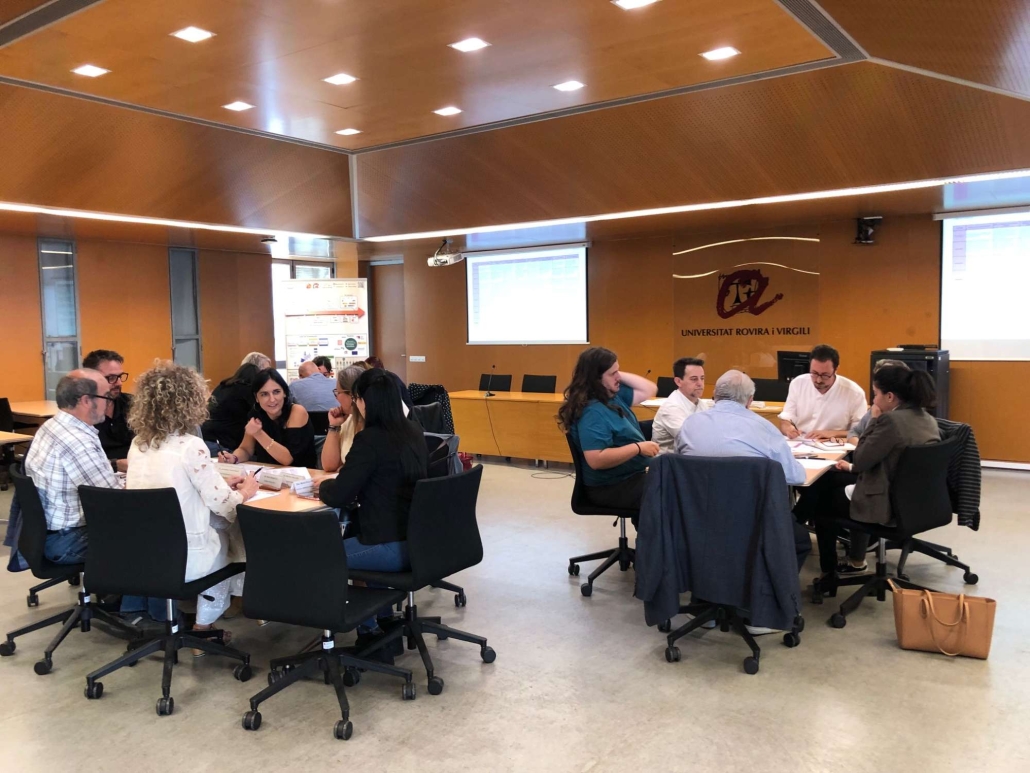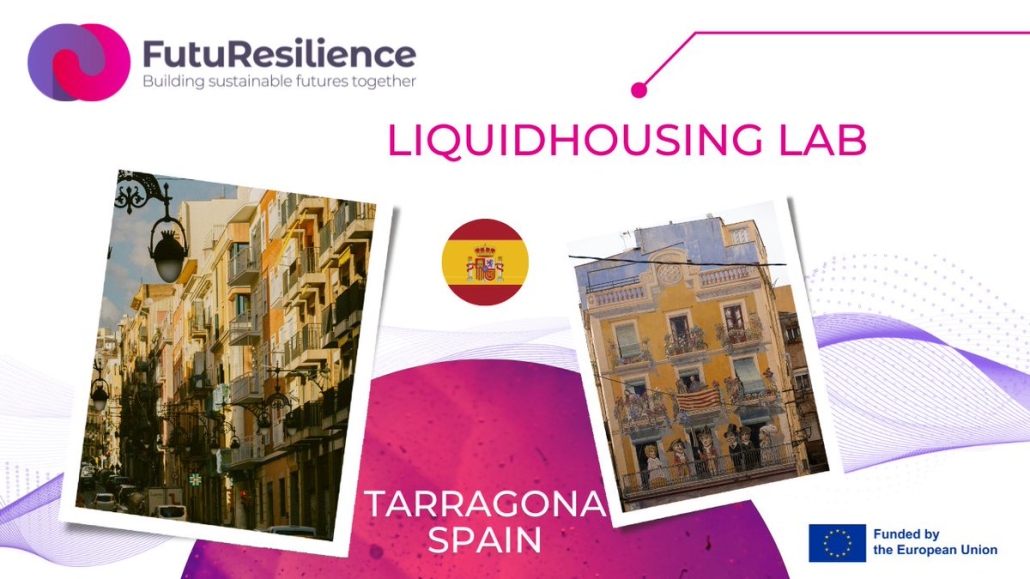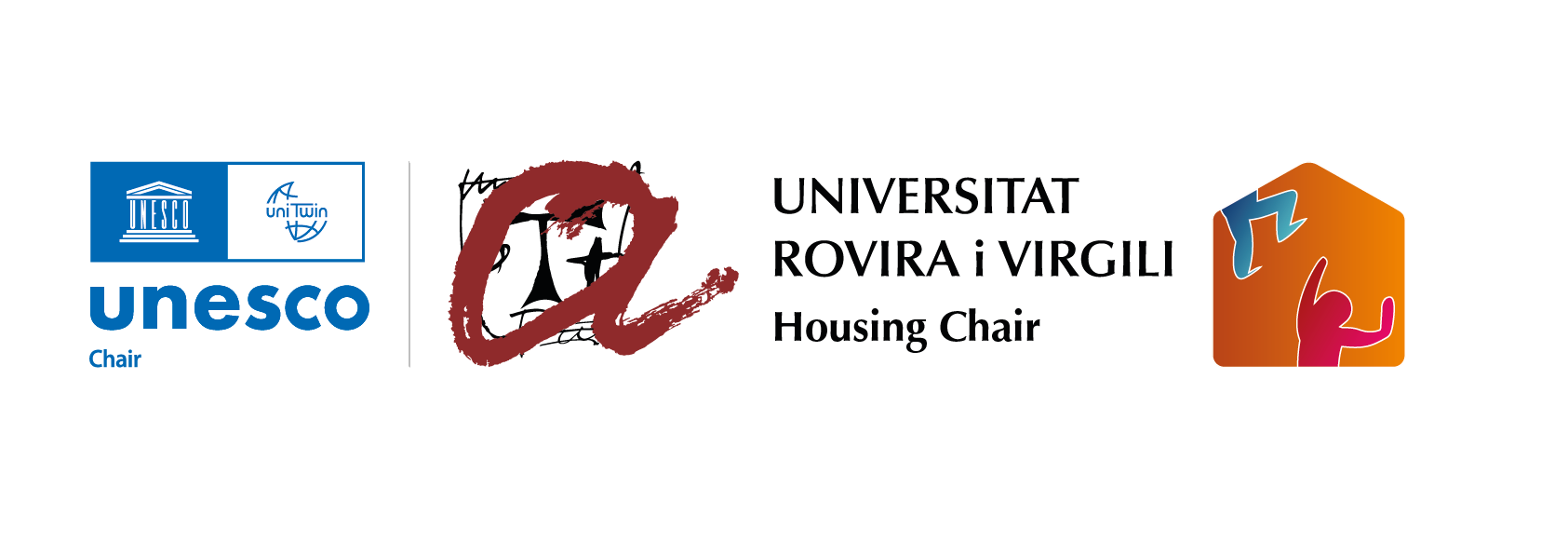Title: Liquid Housing: Addressing the housing «liquefaction» three crisis processes: a pilot case in the city of Tarragona
Funding entity: FutuResilience Project. European Union’s Horizon Europa Research and Innovation Program under grand agreement No 10109445 (https://futuresilience.eu)
Coordination: Dr. Héctor Simón Moreno (URV UNESCO Housing Chair)
Partners: UNESCO Housing Chair of the URV, Universidad NUI Galway
Duration: 1 year
The UNESCO Housing Chair of the Rovira i Virgili University has been chosen by the European Project FutuResilience to carry out a pilot project in the city of Tarragona.
The main objective of the project, which has the support and collaboration of the Municipal Housing Service of the Tarragona City Council, is to examine and understand the phenomenon of “Liquid Housing” in the city of Tarragona, which is characterized by the idea that almost anything can be considered today as an adequate home. This phenomenon is the consequence of the global financial crisis of 2007 and the crises derived from the COVID-19 (2020-2021) and the inflation of 2022. In effect, the processes of urbanization, rural depopulation and the shortage of social and affordable housing have contributed to the fact that housing is not affordable for families with less income in the main urban areas. The public authorities, instead of promoting affordable and as widely distributed home ownership as possible, have chosen during the last 15 years to offer increasingly weaker titles to households with fewer resources, evolving from home ownership, tenancy, cohousing to squatting. The distinction between what is a “housing” (with a clear title, stability, quality and adequacy) and a “temporary shelter” has become more and more blurred. Examples and manifestations of the “Liquid Housing” phenomenon are squatting situations, illegal subletting, forced shared renting, overoccupied or deficient housing and empty housing, many of which are internationally recognized as situations of hidden homelessness.
The pilot project aims to examine and understand these manifestations of the “Liquid Housing” phenomenon from an interdisciplinary and international approach, a challenge that affects the right to housing and human dignity, but also other rights such as the right to private property or the private and family life. Although at the local level there are strategies to address this problem, the difficulties in detecting this phenomenon and the lack of effective housing policies hinder the capacity and resilience of the municipality to address this problem, which goes beyond the right to housing itself since it can also have social, economic, political and environmental implications for society.
This involves the collection of statistical data, the realization of field work, the involvement of interested parties and the formulation of political recommendations based on the identified future scenarios. The objective is to provide empirical evidence, raise awareness and propose solutions to address the complexity of the “Liquid Housing” phenomenon.
More information at: https://futuresilience.eu/future-resilience-labs/liquidhousing
The first workshop of the Liqu id Housing Lab took place on Wednesday, June 19, at the Conference Centre of Tarragona. Dr. Padraic Kenna, Director of the Centre for Housing Law, Rights and Policy at the University of Galway (also partner of the project), was the keynote speaker with a presentation entitled “The Right to Housing and the Types of ‘Liquid Housing’: How to Achieve Resilience?” Dr. Kenna emphasized that resilience in this field involves not only providing affordable housing and security of tenure to those affected by liquid housing but also empowering and educating them with relevant socio-economic skills and addressing their needs holistically through public authorities.
id Housing Lab took place on Wednesday, June 19, at the Conference Centre of Tarragona. Dr. Padraic Kenna, Director of the Centre for Housing Law, Rights and Policy at the University of Galway (also partner of the project), was the keynote speaker with a presentation entitled “The Right to Housing and the Types of ‘Liquid Housing’: How to Achieve Resilience?” Dr. Kenna emphasized that resilience in this field involves not only providing affordable housing and security of tenure to those affected by liquid housing but also empowering and educating them with relevant socio-economic skills and addressing their needs holistically through public authorities.
The workshop brought together 25 participants from various institutions (e.g., foundations, public administration, professional associations, social-sector organizations, neighborhood associations, academia, etc.), who discussed in focus groups the underlying factors that may explain the liquid housing phenomenon and evaluated future scenarios for each factor. These factors were identified based on interviews conducted with stakeholders and scientific evidence on the topic.
As observed, the lack of a coherent multi-level policy and personal and socio-demographic characteristics were identified as the factors with the highest impact and uncertainty. Others, such as irregular legal status or lack of family support and solidarity networks, were classified as high impact but low uncertainty. Meanwhile, insufficient public resources and social benefits and insufficient income to cover housing expenses were categorized as having medium/high impact and uncertainty, whereas low educational levels and bureaucracy and digitalization were deemed to have medium impact and uncertainty.
Participants were then asked to work on projections for each factor in the second part of the workshop using the Tetralemma method.
The second workshop of the Liquid Housing Lab took place on Thursday, October 10, at the University Rovira i Virgili. The workshop brought together 20 participants from different institutions, who worked in three focus groups to develop core scenarios by combining the factor projections elaborated in the first workshop. A minimum of three hours was allocated to this session, but it ultimately lasted three and a half hours.
 Three scenarios were discussed across the three focus groups. Given the importance of the identified factors, the first scenario focused on housing policy, resulting in five different sub-scenarios. Strategically:
Three scenarios were discussed across the three focus groups. Given the importance of the identified factors, the first scenario focused on housing policy, resulting in five different sub-scenarios. Strategically:
- The first group started with Scenario 1, where the absence of a housing policy leads to a society of rich landlords and poor tenants, with the disappearance of the middle class.
- The second group focused on Scenario 3, where the lack of an adequate housing policy impacts the real estate market.
- The third group analyzed Scenario 2, a more favorable one, in which budget increases, improved coordination among administrations, and better housing access are achieved.
This setup allowed for different starting points—two scenarios that evolved as expected but with different impacts (on society and individuals in one case, and on the real estate market in another), and one scenario that diverged from the others. Regarding strategic discussions, participants addressed the impact of each scenario on society as a whole, their institutions, and citizens. The guiding questions were: a) How does this scenario impact society as a whole? Who benefits, and who is disadvantaged?; b) How does this scenario impact your institution specifically? What would your day-to-day operations look like?; c) How does this scenario impact citizens in general, particularly those experiencing hidden homelessness?
Finally, each group was asked to summarize its scenario in a single sentence.
 The third workshop on policy design for the Liquid Housing Lab took place on January 22, 2025, in Tarragona, with the aim of identifying policies that can foster resilience in preparation for the four scenarios developed in the second workshop. The workshop brought together 20 participants from different institutions, who validated in focus groups 21 housing policies drawn from the Knowledge Base of the FutuResilience project, other European initiatives, and practices from various regions of Spain. Policy options were categorized into five groups.
The third workshop on policy design for the Liquid Housing Lab took place on January 22, 2025, in Tarragona, with the aim of identifying policies that can foster resilience in preparation for the four scenarios developed in the second workshop. The workshop brought together 20 participants from different institutions, who validated in focus groups 21 housing policies drawn from the Knowledge Base of the FutuResilience project, other European initiatives, and practices from various regions of Spain. Policy options were categorized into five groups.


